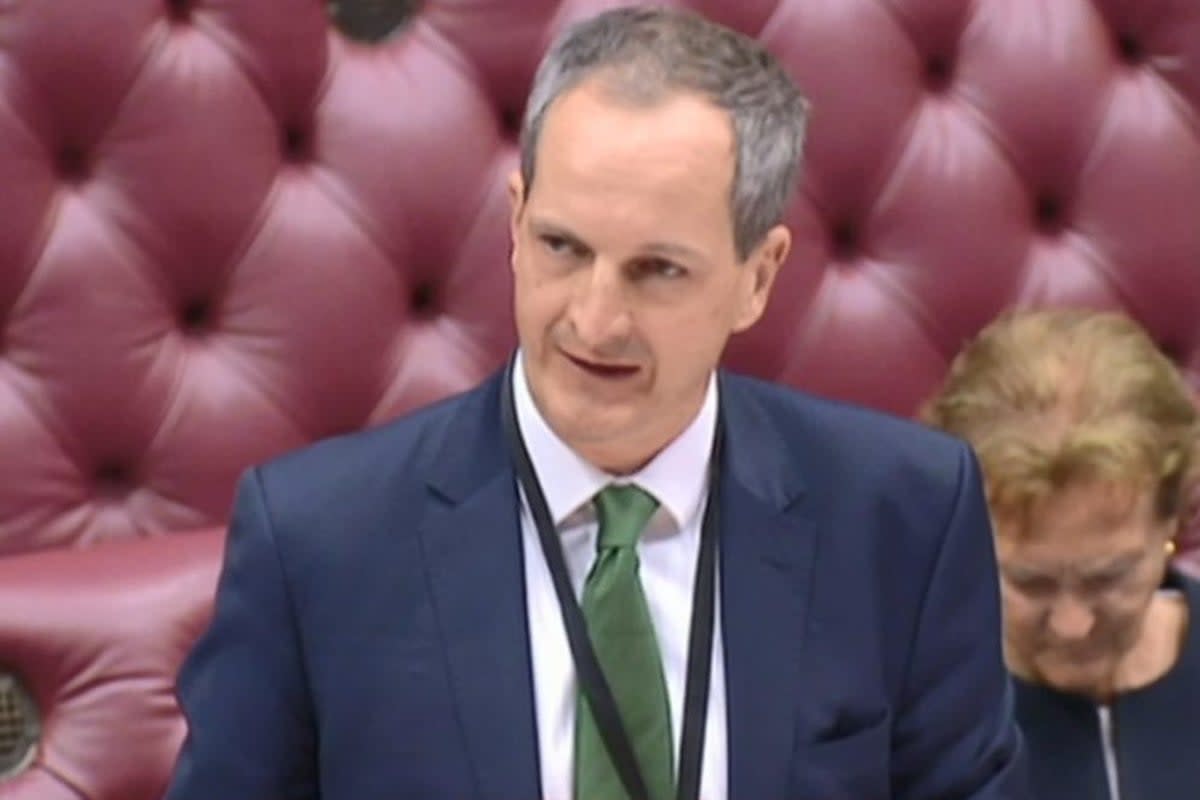Government 'not doing nearly enough' to tackle obesity, says former Tory health minister

The Government is "not doing nearly enough" to tackle Britain's obesity crisis, a former Conservative health minister has claimed, as analysis revealed that more than a billion people worldwide are obese.
Tory peer Lord James Bethell said that obesity was an "unspoken epidemic" in the UK and that the public would back measures such as a wider sugar tax and restrictions on junk food advertising.
Research published on Friday by the journal The Lancet suggests that as of 2022, around 159 million children and adolescents and 879 million adults are obese.
In the UK, around 16.8 million people are living with obesity – which includes eight million women, 7.4 million men, 760,000 boys and 590,000 girls. It is estimated to cost the NHS more than £6.5 billion each year.
Obesity increases the risk of type 2 diabetes, cancer, mental health issues and many other illnesses, which can lead to an early death.
Lord Bethell served as a health minister in Boris Johnson's Government at the height of the Covid pandemic in 2020 and 2021. He left the Department of Health following a Cabinet reshuffle in September 2021.
Speaking to the Standard, he accused ministers of "bottling" the implementation of the obesity strategy, which aims to halve childhood obesity by 2030, by delaying a ban on buy one get one free deals on unhealthy snacks and junk food advertising restrictions until 2025.
"Obesity is going to bankrupt the country. There are half a million people who have dropped out of the workforce and a significant proportion of them are obese," he said.
"We simply can't continue in this way and have the broader economy picking up the pieces. There are not enough NHS doctors and nurses to treat all of the future diseases this is going to cause."
The Government’s food tsar Henry Dimbleby resigned last year after claiming that the Tories’ “ultra-free-market ideology” was preventing them from taking action to fix the obesity crisis.
Lord Bethell said that while there is "strong support among voters and the media" for measures such as an extension of the sugar tax and restrictions on junk food advertising, strategists and advisers in Westminster have created a "political bottleneck" as they are worried about "disturbing the public".
“What they fail to recognise is that the public showed huge enthusiasm for their health during Covid,” he added. "They have got this one badly wrong. We have wasted the momentum that we had from the pandemic, when public interest in health was high.”
A study released on Thursday found that more than 9,000 heart disease-related deaths could be prevented in England over the next two decades if all restaurants, fast food outlets, cafes, pubs and takeaways put calories on their menus.
Under Government policy introduced in April 2022, only large food businesses with 250 or more employees have to display calories on their menus.
Lord Bethell said that extending the policy to all food outlets “would not change the way Britain eats overnight” but that “we owe it to people to give some kind of indication of the impact of the food they eat”.
“Previous evidence suggests that people do switch when they know how many calories are in a spaghetti carbonara or a tiramisu. There is a basic responsibility to give people data to navigate these decisions.”
He added: “This may also mean that the producers of food have to think about how they make it. We have already seen from the sugar tax that when we hold manufacturers to account, it does not take much for them to figure out ways to start changing the components of their food.”
A Department of Health and Social Care spokesperson said: “We are taking firm action to tackle obesity, which costs the NHS around £6.5 billion a year, while balancing cost pressures due to increased food prices.
“Our Soft Drinks Industry Levy has nearly halved the amount of sugar in soft drinks, removing 46,000 tonnes in total, and our sugar reduction programme has led to reductions in sugar levels in breakfast cereals, yogurts and milk based drinks.”
“We introduced mandatory calorie labelling in large restaurants, cafes, and takeaways in April 2022, helping people make informed choices for themselves and their families when eating out. In October 2022, we also introduced locations restrictions, which mean that less healthy food can no longer be placed in key selling locations in supermarkets.”

 Yahoo News
Yahoo News 
